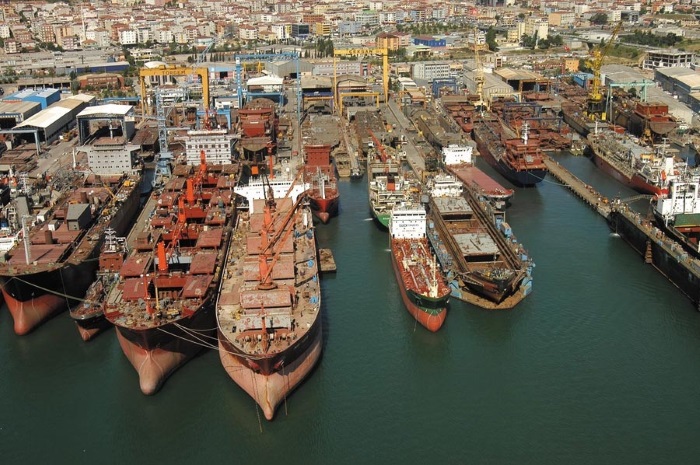A run of weak economic data in China is likely to show up in softer imports of key commodities, albeit with a lag given the time taken to physically ship resources from around the globe.
The manufacturing indicator, the official Purchasing Managers’ Index (PMI), dropped to a five-month low of 48.8 points in May, the National Bureau of Statistics (NBS) said on Wednesday.
This was the second month the measure was below the 50-level that separates expansion from contraction, and it was also weaker than the median forecast for a rise in May to 49.4 from April’s 49.2.
Weakness in China’s manufacturing sector has been matched by soft outcomes in other important parts of the world’s second-biggest economy.
Property investment fell 16.2% year-on-year in April, the fastest since November 2022, according to Reuters calculations based on official data.
Property sales measured by floor area slumped 11.8% on year in April, the most this year, versus a 3.5% fall in March.
Industrial profits fell 20.6% in the first four months of the year from the same period in 2022, according to NBS data.
The major bright spot for the Chinese economy is retail sales, which jumped 18.4% in April from the same month a year earlier, but even this performance was short of market expectations for a 21% leap.
But retail spending isn’t the top driver of demand for commodities, although it does act to boost demand for refined fuels such as gasoline and jet kerosene as people increase travel.
Rather it is construction and manufacturing that propel commodity demand, especially for steel raw material iron ore and for copper.
Construction and infrastructure account for about 55% of China’s steel consumption, with manufacturing, including vehicles and machinery, taking about 30%.
The softness in those sectors is likely to show up in commodity imports in coming months, but not yet.
IMPORT STRENGTH TO FADE?
In fact, imports of major commodities in May are likely to be robust, but it is worth remembering that these are lagging indicators.
Seaborne iron ore imports are expected at about 93.29 million tonnes, according to Refinitiv data, which would be stronger than the 90.44 million tonnes recorded by customs in April.
Crude oil imports are expected by Refinitiv Oil Research to come in at 11.22 million barrels per day (bpd), which would be up from the 10.36 million bpd in April and down from the 34-month high of 12.37 million bpd in March.
Imports of all grades of seaborne coal are forecast by commodity analysts Kpler to be 34.33 million tonnes in May, up from 33.61 million in April, but down from March’s 34.42 million.
However, it is worth noting that coal imports in the March to May period are the highest in Kpler records going back to January 2017.
The May import performance is likely a reflection of expectations by Chinese refiners and steel mills that the economic rebound would be stronger than it has actually been.
If this is the case, it’s likely that they may consider trimming imports in coming months, especially if the run of soft economic data continues.
It can take several months between the arranging of a crude oil cargo and its delivery and processing in a Chinese refinery, and iron ore cargoes also tend to be secured several weeks ahead of shipment and delivery.
The X-factor is price. If crude oil, iron ore, coal and copper prices all continue to drop, it’s possible that Chinese buyers will import more than they need, choosing to build inventories for when prices start rising again.
Global benchmark Brent crude futures ended at $72.66 a barrel on Wednesday, the lowest close in four weeks.
Iron ore futures traded in Singapore finished at $105.07 a tonne, down 10 cents from the previous close and some 20% below the peak this year of $131.19 from March 15.
London copper futures ended at $8,089 a tonne on Wednesday, down 0.4% from the prior close and 13.5% below the closing peak this year of $9,356 on Jan. 23.
While lower prices may encourage some Chinese buying, it’s also likely that importers may wait for further price falls, especially if the economic performance continues to sputter.
Source: Hellenic Shipping News





